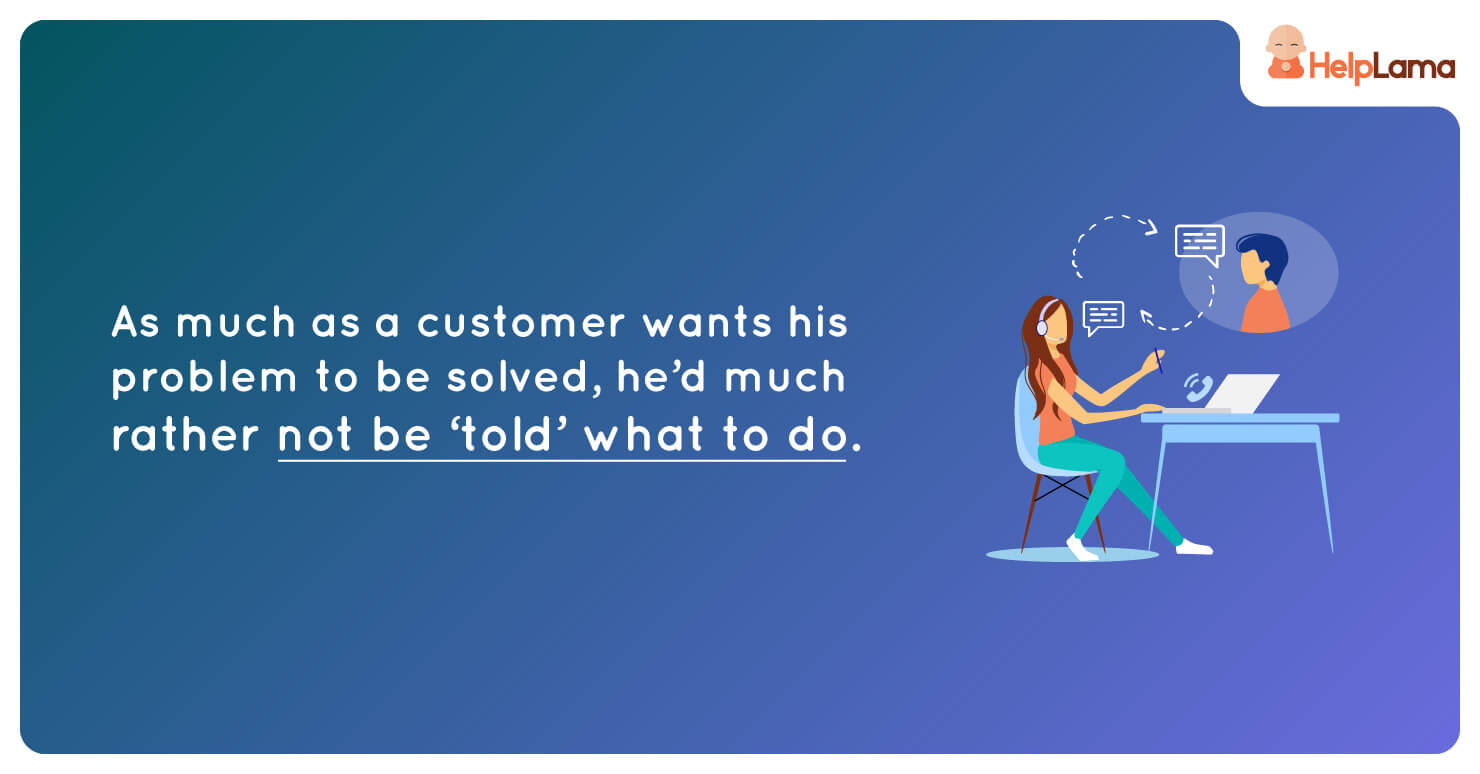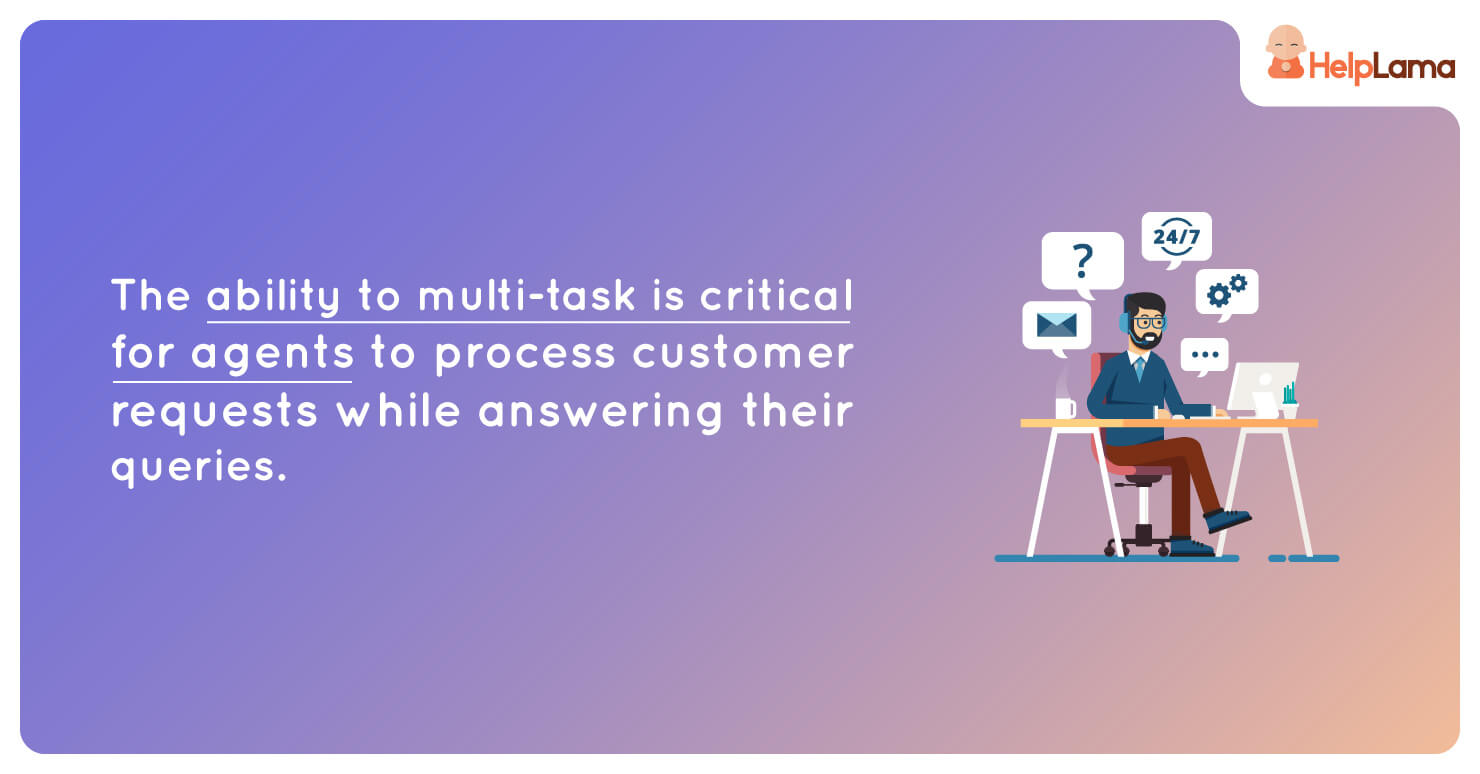What makes customer support truly exceptional? Some companies like Salesforce define exceptional service as “building relationships with customers” while others prefer the term “proactive service”. In fact, businesses worldwide are spending a lot of time and money to codify the essential elements of exceptional customer support in a bid to gain an edge over the competition.

From the checkout process to the unboxing of the product, there are several touchpoints that online stores can leverage to deliver the wow experience. It does not end there, though. The post-purchase experience is just as important. For example, by simplifying your terms of the warranty, returns, and refunds, you can create more reasons for customers to keep buying from you. The outcome is not just increased average sales per session but likely positive reviews on social media which can have a multiplier effect on sales.
Funnily enough, it does not take a lot to make a customer happy. Most just want quick service while others have the need to be understood and empathized with. Taking ownership of customer issues is another factor that can distinguish you from the competition. Processes and systems do have their place in delivering great customer experience. At its most basic, however, exceptional customer support is going the extra mile for the customer.
Key Qualities that make Your Customer Support Worth It
Let’s take a look at the many qualities of exceptional customer support and how they relate to the key performance metrics:
Empathy
The ability to acknowledge and empathize with the customer’s state of mind is based on two factors: the issue he contacts you about and his previous purchase history. A quick response at the start of the conversation can make an immediate difference to the customer’s experience and elevate your brand in his eyes. The ability to visualize the situation is crucial to being able to ‘put yourself in the customer’s shoes’ – a mantra that is ubiquitous in the customer service industry. Experts say that it is important to pace the customer to build rapport and apologize – whenever required- to create a state of collaboration for a solution to be found.
Ability to understand the broader strategy of the company
Your reps must align with the company’s broader mission to ensure a consistent customer experience. They should embody your brand’s voice and tone. Understanding this mission helps agents see their impact. For example, if your company is recognized as a leader in healthcare products, your reps must not overlook queries from customers that are entirely unrelated to your product line. If a customer requires assistance and your company aims to establish itself as a leader in the organic diet or holistic health sector, your reps MUST NOT compromise the brand image by neglecting a wellness-related question simply because the customer is not (yet!) interested in your products. Most people will make a purchase because they connect with your brand values, not solely because you provide excellent products at competitive prices.
It is also very important that the agents are able to understand how things work behind the scenes, for example, the basic cost of goods, your fulfilment/shipping costs and your margins. This allows them to take quick decisions with respect to refunds, reshipping or discounts. This can be critical from the cash flow point of view. For example, in certain cases, reshipping might be cheaper than a full refund.
Also read: 5 Best Customer Support Agencies For Startups In 2023
Communicating with confidence
Psychologists say that the words humans choose to describe our experiences are responsible, in large part, for creating it in the first place. To deliver exceptional support, agents need to be able to paraphrase the customer’s situation to confirm they have understood while taking care to avoid using the same words that trigger frustration or anger. Changing their tone of voice while recommending a solution can help agents non-verbally suggest to the customer that their ordeal is over. Confidence also relates to demonstrating product knowledge and indicating that the agent is in control of the situation. In this context, the speed with which the agent handles the situation determines whether the customer goes away feeling satisfied or not.
Emotional Equanimity
Customer service can be an emotional battlefield and your reps are often the last line of defense before a full blown escalation or worse, a customer cancelling an order. During peak hours, your agents may come across customers who are short because their order didn’t arrive on time or their purchase wasn’t covered under your terms of warranty. If handled tactfully, you may be able to convince the customer to come around to your point of view. So, you need reps who do not lose their cool with a frustrated customer.
They need to be able to see the big picture and know that the customer’s anger is not directed personally at them. More often than not, a single bad phone call with a customer who shouts at you can be enough to ruin the rest of your day. You need reps who can take such phone calls once in a while without suffering from a significant productivity decline. Training agents in de-escalation techniques and solution-oriented thinking can pay off disproportionately in terms of repeat sales and referrals.
Offering alternatives for the customer to choose from

While doing so, the agent must be clear about the possibility of delays, given the relative popularity of options such as in-store delivery. A quick summary of the request can put customers at ease and enhance the overall experience. Research suggests that this can greatly improve customer service quality. In fact, most customers prefer to interact with companies that tailor their products and services to their unique requirements.
Complete attention throughout the interaction
The team needs to ensure that they keep past customer conversations front and center to give customers a sense that your team is duly noting their concerns. Otherwise, your agents might come across as incompetent or worse, indifferent. On the other end of the spectrum, some customers really like to elaborate upon their smallest issues through incredibly detailed emails that run into thousands of words.. Since support agents are trying to resolve as many tickets as possible, they sometimes skim through these long emails, missing out on important points.
Agents ought to receive training in giving due attention to every detail mentioned by the customer. Capture important details, such as alternate shipping addresses, times of arrival, and dates of purchase, among others. Log this information into your helpdesk software to empower agents in resolving customer issues. This data can also assist in correlating C-SAT figures and pinpointing the exact causes of customer dissatisfaction. Additionally, support agents should keep an eye out for potential identification of important influencers when they reach out.
Ability to multi-task and switch contexts
The ability to multi-task is critical for agents to process customer requests while answering their queries. How well they do this will determine the overall response time and even conversion rate for your team. Most companies rarely offer support through a single channel these days. Often, the agent offering email support would also need to take calls or live chats during the course of the day. So, an agent who is unable to switch contexts quickly will have a terribly hard time focussing on the customer. It is important that your agents are hands-on with email, chat, and voice tools. Integrating these channels with a common backend is key to agents’ ability to provide the service customers expect. An up to date knowledge base with ‘quick links’ to FAQs is also a prerequisite.
Take full responsibility for customer issues
Customer support should always be proactive rather than reactive. A representative should take it upon themselves to promptly notify all potentially affected customers as soon as they detect an issue with shipping to a specific location or the unavailability of a particular product. They must consider this their responsibility. According to the defined goal for turnaround time, they should then ensure they follow up with customers to confirm that their issue has been resolved and that they can proceed to close the ticket. At times, customers simply go silent after raising a request and this is not a good sign. The reps should consider every customer as their brand ambassador. Owning customer issues start to finish can drive loyalty and generate better online reviews for your store.
Last words
Incorporating skills such as empathy, confidence, and product knowledge can have a direct impact on both the efficiency and quality of customer service delivery, justifying its cost. With businesses struggling to stay afloat due to the coronavirus pandemic, exceptional companies are thinking out of the box to stay relevant in the minds of their target audience. On-demand customer support outsourcing is turning out to be a game changer for small businesses. Helplama is a trusted customer support outsourcing partner for brands in niches ranging from furniture to apparel. With us on your side, you get: on-demand support, zero training costs, flexible pricing plans, and lightning quick deployment.
To know more about how we can help you be available for your customers night and day, call us now!




